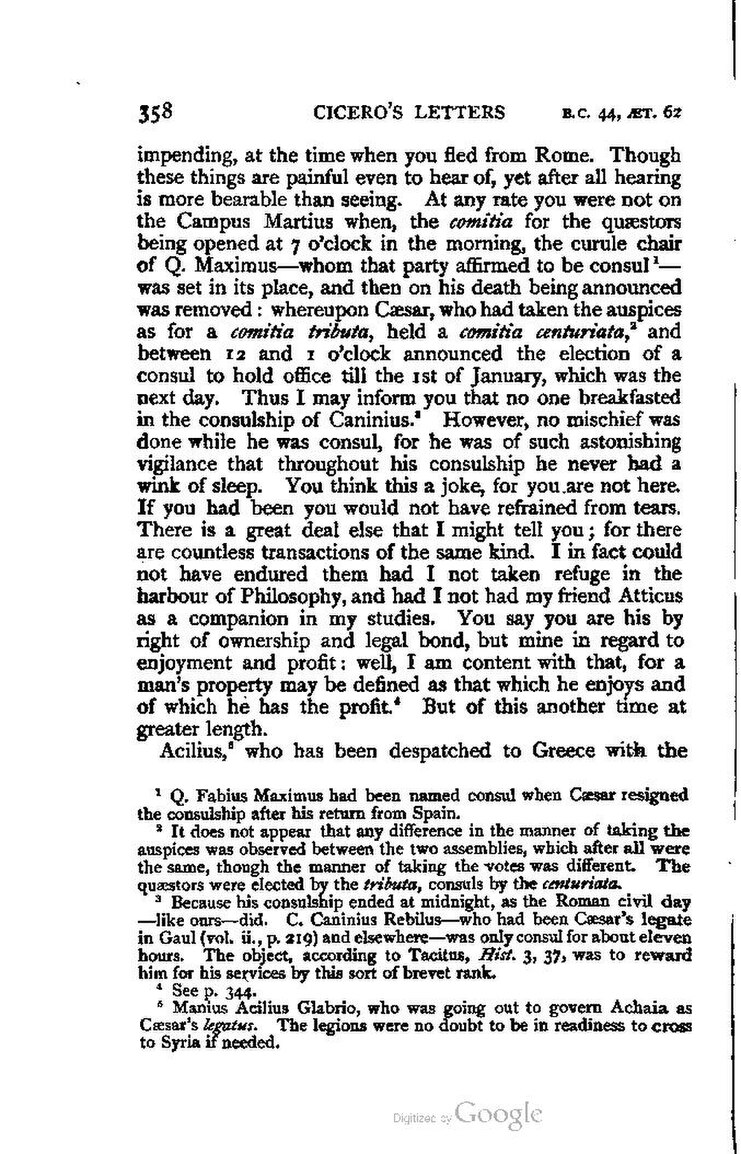B.C. 44, ÆT. 62 impending, at the time when you fled from Rome. Though these things are painful even to hear of, yet after all hearing is more bearable than seeing. At any rate you were not on the Campus Martius when, the comitia for the quæstors being opened at 7 o'clock in the morning, the curule chair of Q. Maximus—whom that party affirmed to be consul[1]—was set in its place, and then on his death being announced was removed: whereupon Cæsar, who had taken the auspices as for a comitia tributa, held a comitia centuriata,[2] and between 12 and 1 o'clock announced the election of a consul to hold office till the 1st of January, which was the next day. Thus I may inform you that no one breakfasted in the consulship of Caninius.[3] However, no mischief was done while he was consul, for he was of such astonishing vigilance that throughout his consulship he never had a wink of sleep. You think this a joke, for you are not here. If you had been you would not have refrained from tears. There is a great deal else that I might tell you; for there are countless transactions of the same kind. I in fact could not have endured them had I not taken refuge in the harbour of Philosophy, and had I not had my friend Atticus as a companion in my studies. You say you are his by right of ownership and legal bond, but mine in regard to enjoyment and profit: well, I am content with that, for a man's property may be defined as that which he enjoys and of which he has the profit.[4] But of this another time at greater length.
Acilius,[5] who has been despatched to Greece with the
- ↑ Q. Fabius Maximus had been named consul when Cæsar resigned the consulship after his return from Spain.
- ↑ It does not appear that any difference in the manner of taking the auspices was observed between the two assemblies, which after all were the same, though the manner of taking the votes was different. The quæstors were elected by the tributa, consuls by the centuriata.
- ↑ Because his consulship ended at midnight, as the Roman civil day—like ours—did. C. Caninius Rebilus—who had been Cæsar's legate in Gaul (vol. ii., p. 219) and elsewhere—was only consul for about eleven hours. The object, according to Tacitus, Hist. 3, 37, was to reward him for his services by this sort of brevet rank.
- ↑ See p. 344.
- ↑ Manius Acilius Glabrio, who was going out to govern Achaia as Cæsar's legatus. The legions were no doubt to be in readiness to cross to Syria if needed.
